
 Flash News
Flash News
Ceno Klosi with over 800 stolen votes, Balluku finds the reason is the tiredness of the counters
"Fast & Furious" in the former Block, police chase an Audi Q8, 4 cars collide
Car hits two tourists on a motorcycle in Fushe Arrëz, one of them dies
Serious accident in Thumanë, one dead, 3 injured
Durrës Court suspends the director of Pre-University Education from duty
Grandparents in foster care? This is what the prosecutors benefit from
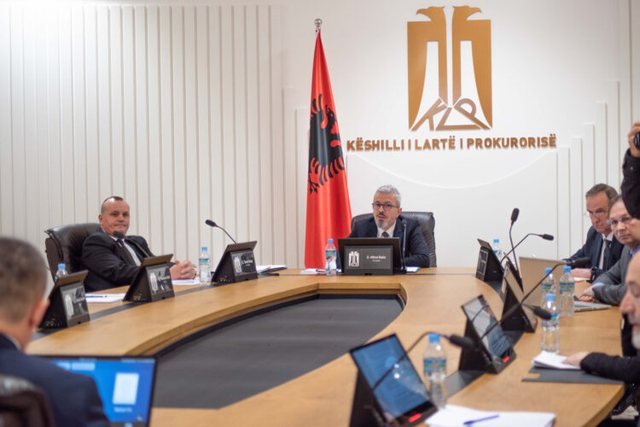
The High Prosecution Council approved three regulations amid debates, among which is the one on reducing the workload, where apart from prosecutors who have health problems themselves, those who have sick family members under their care, including grandparents, can apply. Meanwhile, KLP withdrew from the agenda a draft act on communication with the media.
The review of some draft acts for some regulations at the plenary meeting of the High Council of Prosecution, KLP on Tuesday, September 19, took place with debates among the members of this council. With the 10 votes of the members present at the time of voting, the draft act for the regulation 'On the criteria and procedure for the appointment of prosecutors at the Special Prosecutor's Office against Corruption and Organized Crime was approved.
Member Ledina Riza stated that the regulation should have been discussed before among the members, in order to agree on the final version. The member Arta Mandro also requested that meetings be held between all the members to informally discuss the important project-acts and those for the regulations, in order not to remain isolated in the commissions. Member Bujar Sheshi requested that comments be submitted before the regulations come to the council for approval.
Another draft act, which had to do with the "Approval of the regulation for the communication of the High Prosecution Council with the media", was withdrawn from the working group. The head of the working group, councilor Nurihan Seiti, stated that they had left it to discuss with the media in advance. "Let's leave it for another day," she said, and the same opinion was expressed by the council chairman, Alfred Balla, who asked for such a thing to be done as soon as possible.
Next, Riza discussed the draft act for the regulation 'On setting rules and procedures on reducing the workload for prosecutors'. She also listed the circumstances in which a prosecutor had to be found to request a reduction in workload, specifically for health reasons of the magistrate himself or of family members, parents and even grandparents, if the need for guardianship for them was proven with documentation.
Another reason was the continuation of studies after the school of magistracy or engagement in duties other than that of the prosecutor.
"A situation will be created that we will take the grandmother under guardianship", declared member Sokol Stojani.
Nga sa u diskutua në mbledhje u mësua se, ulja e ngarkesës së punës do të përcaktohet bazuar në përllogaritjen e ngarkesës mesatare të prokurorisë ku ushtron funksionin kërkuesi, pasi ai të ketë provuar me dokumentacion ligjor arsyen ku e bazon kërkesën për ulje të ngarkesës, si dhe se në rast të pranimit të një kërkese të tillë, pagesa do të jetë në masën 75%.
Anëtarja Esmeralda Keshi solli në vëmendje se legjislacioni nuk lejon uljen e orëve të punës. Sipas saj, është e nevojshme që fillimisht të propozohen ndryshime në dispozitat ligjore, që në uljen e ngarkesës së punës, të parashikohet edhe pakësimi i orarit.
‘Ne nuk e ulim dot orarin e punës se ligji nuk na jep të drejtën për të ulur kohën fizike të punës’, pohoi Keshi. Sërish Riza nënvizoi se është e nevojshme që për rregulloret të ketë diskutime mes anëtarëve paraprakisht, përpara se të paraqiten për miratim.
Anëtari Bujar Sheshi propozoi heqjen nga projekt-akti i rregullores të nenit për uljen e kohës së punës. Megjithëse u hodh për votim që të mos miratohej kjo rregullore, me katër votat e anëtarëve që ndan këtë mendim nuk u miratua propozimi i Keshit. KLP vendosi me 7 vota të miratojë në tërësi rregulloren për uljen e ngarkesës në punë të prokurorëve. Gjatë votimit nen për nen, u miratua edhe propozimi i Sheshit për heqjen e përcaktimit lidhur me uljen e orëve të punës, me argumentin se bie në kundërshtim me legjislacionin në fuqi.
Amid debates, the regulation 'On the granting of unpaid permits' was also approved. The members were divided among themselves regarding the determination of the authority that will grant the unpaid leave to the heads of the prosecutions. In the end, the proposal was approved with 6 votes in favor, which stipulates that the permits of the heads of the prosecutor's offices will be granted by the General Prosecutor, in the capacity of the highest prosecutor. The minority of members estimated that it should have been the council that gave the permission, arguing that the General Prosecutor is the highest prosecutor only procedurally and not in the functional and organizational aspect of the prosecution offices, the powers that according to them the council has.
At Tuesday's meeting, six more draft acts were approved out of 14 that were foreseen in the agenda. /Reporter.al/
Latest news





Lufta në Gaza/ Pse Netanyahu do vetëm një armëpushim 60-ditor, jo të përhershëm?
2025-07-02 21:56:08
US suspends some military aid to Ukraine
2025-07-02 21:40:55



Methadone shortage, users return to heroin: We steal to buy it
2025-07-02 20:57:35
Government enters oil market, Rama: New price for consumers
2025-07-02 20:43:30
WHO calls for 50% price hike for tobacco, alcohol and sugary drinks
2025-07-02 20:41:53







Israel agrees to 60-day ceasefire in Gaza, but many unanswered questions remain
2025-07-02 18:35:27
The weather in Germany is going "crazy", temperatures reach 40°C
2025-07-02 18:22:21

"Fast & Furious" in the former Block, police chase an Audi Q8, 4 cars collide
2025-07-02 17:59:25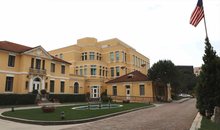
"Birth on a tourist visa? US Embassy warns Albanians: This is prohibited!"
2025-07-02 17:48:16


BIRN: Fier recount reveals vote trafficking within open political party lists
2025-07-02 16:57:19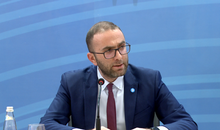

CEO and former director of 'Bankers Petroleum' arrested in Fier
2025-07-02 16:40:42
Car hits two tourists on a motorcycle in Fushe Arrëz, one of them dies
2025-07-02 16:33:23



Fire at the Elbasan Incinerator Landfill, Prosecution Launches Investigations
2025-07-02 15:34:54
What you need to know if you travel to a country with active volcanoes
2025-07-02 15:33:03

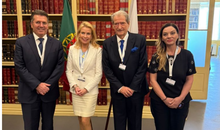

EU proposes 90% reduction in greenhouse gases by 2040
2025-07-02 14:50:23
Europe is burning from the heat / Italy and France are on maximum alert
2025-07-02 14:36:52

Moscow's contradictory statements: Is the friendship with Vučić breaking down?
2025-07-02 14:21:05
'I lost my battle': Sea warming is killing fishing in Albania
2025-07-02 14:08:35
Sekretet kimike që ndihmojnë në mbajtjen e mjaltit të freskët për kaq gjatë
2025-07-02 14:01:26

Denmark makes historic decision to make military service mandatory for women
2025-07-02 13:44:33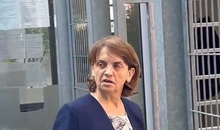
The appeal of the GJKKO leaves former judge Pajtime Fetahu in prison
2025-07-02 13:30:20
Productivity losses could reduce GDP by 1.3% as a result of extreme heat
2025-07-02 13:21:04
He abused his minor daughter, Zamir Meta is left in prison
2025-07-02 13:04:04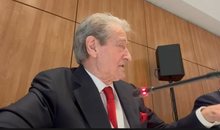

Waste burning in Elbasan, Alizoti: They are poisoning people and stealing money
2025-07-02 12:48:39
Civil disobedience continues in Serbia, dozens of people detained
2025-07-02 12:40:32
Rama's government was born under the sign of garbage and will end like this
2025-07-02 12:28:09
Water prices increase in the municipalities of the Elbasan region
2025-07-02 12:13:38
Civil disobedience continues in Serbia, what is happening in Belgrade?
2025-07-02 12:07:44
Serious accident in Thumanë, one dead, 3 injured
2025-07-02 11:54:42
Durrës Court suspends the director of Pre-University Education from duty
2025-07-02 11:49:27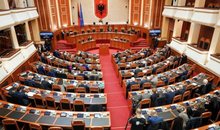
Plenary session on Thursday, what is expected to be discussed
2025-07-02 11:36:43
Europe is burning from heat waves/ What is the 'thermal dome' phenomenon?
2025-07-02 11:26:25
Wanted by Italy for murder, 45-year-old arrested in Vlora
2025-07-02 11:19:31
Fire situation, 28 fires reported in 24 hours, 2 still active
2025-07-02 11:13:20
"Buka" file, preliminary hearing for Ahmetaj postponed to July 17
2025-07-02 11:03:30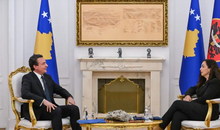


Baçi: Belinda Balluku and Ceno Klosi, the most dangerous "gangs" in Fier
2025-07-02 10:32:09
Zamir Meta, suspected of sexually abusing his daughter, arrives in court
2025-07-02 10:21:33

Trump: Israel has agreed to a 60-day ceasefire in Gaza
2025-07-02 10:01:55
Fire continues at Elbasan landfill
2025-07-02 09:51:13

Dates to note during July, important events will occur
2025-07-02 09:31:45
The hearing for Jorgo Goro's claim is postponed
2025-07-02 09:24:19
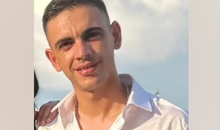


Foreign exchange, the rate at which foreign currencies are sold and bought
2025-07-02 08:42:31

52% of pensioners did not receive full pension in 2024
2025-07-02 08:27:18
Horoscope, what do the stars have in store for you today?
2025-07-02 08:13:36
Hot weather, Wednesday brings high temperatures
2025-07-02 07:59:16
Morning Post/ In 2 lines: What mattered yesterday in Albania
2025-07-02 07:46:15
Heatwave sweeps across Europe, Spain and England record hottest June ever
2025-07-01 22:57:41






Golem and Qerret without water at the peak of the tourist season
2025-07-01 21:09:32

Euractiv: Italy-Albania migrant deal faces biggest legal challenge yet
2025-07-01 20:53:38
BIRN: Brataj and Fevziu victims of a 'deepfake' on Facebook
2025-07-01 20:44:00

Vlora by-pass, work delays and cost increases
2025-07-01 20:24:29



Milan are expected to give up on the transfer of Granit Xhaka
2025-07-01 19:41:25

